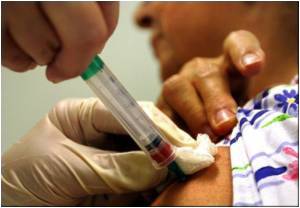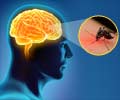World Encephalitis Day is celebrated on 22nd February every year. It raises awareness about encephalitis and empowers patients and their families so that they are able to better cope with the disease.
- World Encephalitis Day is celebrated annually on 22nd February
- Its major objective is to raise awareness about the dangers of encephalitis
- It empowers patients with authentic knowledge so that they can better tackle the disease
This year is the 6th Edition of World Encephalitis Day, which will celebrate the millions of lives affected by encephalitis around the world. The main objective of this year’s celebrations is equipping survivors and their families with the requisite resources, information and support to help them cope with encephalitis. Hence, the Focus for 2020 is on ‘Encephalitis Experts’.
Besides the Encephalitis Society, other leading global organizations dedicated to helping encephalitis patients include the Autoimmune Encephalitis Alliance, the Anti-NMDA Receptor Encephalitis Foundation, Encephalitis 411, Hashimoto’s Encephalopathy SREAT Alliance (HESA), and Encephalitis Global.
Read More..
Encephalitis: Facts & Figures
- 78 percent of people across the world don’t know what encephalitis is
- 500,000 people are affected by encephalitis globally every year
- 60 percent of encephalitis cases remain undiagnosed
- 1 person every minute develops encephalitis around the world
- Death rates are high and survivors are left with acquired brain damage
- Encephalitis can affect anyone, irrespective of age, gender, ethnicity or nationality
- The antiviral drugs, Acyclovir and Ganciclovir, can be used to treat some forms of viral encephalitis
Ways to Get Involved in the World Encephalitis Day Celebrations
There are various ways to get involved in the celebrations, some of which are highlighted below:- Wearing ‘Red’: ‘Red’ is the awareness color for World Encephalitis Day. So, by wearing anything in red, such as red hats, caps, shoes, ties or T-shirts, will not only show support for encephalitis patients, but also raise funds for their care
- BrainWalk: The Encephalitis Society has developed an award-winning smartphone App by means of which people can take part in a virtual walking event, aptly termed ‘BrainWalk’. The participants can virtually walk to locations around the world where encephalitis is relevant
- Social Media Campaigns: Social media platforms such as Facebook, Twitter and Instagram can be utilized to inform friends and relatives about the condition and encourage them to extensively share the information to create a ‘snowballing effect’. The hashtag #RED4WED should be used for all posts
- Fundraising Events: Community-level events such as sponsored walks and runs, cake sales, coffee mornings, or raffles and lotteries could be organized. These activities will not only be fun, but also help to generate awareness, as well as raise funds for the care of underprivileged encephalitis patients
- Information Dissemination: Banners, placards, and posters can be displayed at strategic locations, such as malls, community centers, hospitals, schools and colleges to create awareness among the general public. Leaflets and pamphlets can also be distributed to spread the word
- Donations: Spreading the message by word of mouth and encouraging friends, colleagues and relatives to donate in cash or kind will make a world of difference to families affected by encephalitis
Latest Research on Encephalitis
Current research is focused on increasing our fundamental knowledge about the brain and nervous system. Leading international institutes such as the NIH’s National Institute of Neurological Disorders and Stroke (NINDS) in Bethesda, USA is conducting groundbreaking research.In India, the National Institute of Mental Health and Neurosciences (NIMHANS) in Bengaluru is increasing our understanding of brain function through its clinical research initiatives. Basic research on immune responses and their role in brain inflammation is also being conducted to gain better insight into the molecular mechanisms involved. This could lead to the development of new neuroprotective therapies for treating both infectious and autoimmune encephalitis.
So, on World Encephalitis Day, let’s all come together to show our solidarity for patients and their families affected by encephalitis and raise global awareness about the condition for a better future.
Reference:
- World Encephalitis Day: Encephalitis Society, UK - (https://www.encephalitis.info/pages/category/wed)
- Stroke, National Institutes of Health (NIH), USA - (https://www.ninds.nih.gov/Disorders/Patient-Caregiver-Education/Fact-Sheets/Meningitis-and-Encephalitis-Fact-Sheet)
- World Encephalitis Day - (https://en.wikipedia.org/wiki/World_Encephalitis_Day)
Source-Medindia















